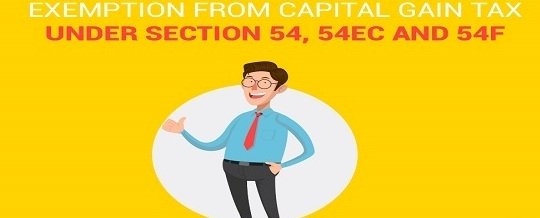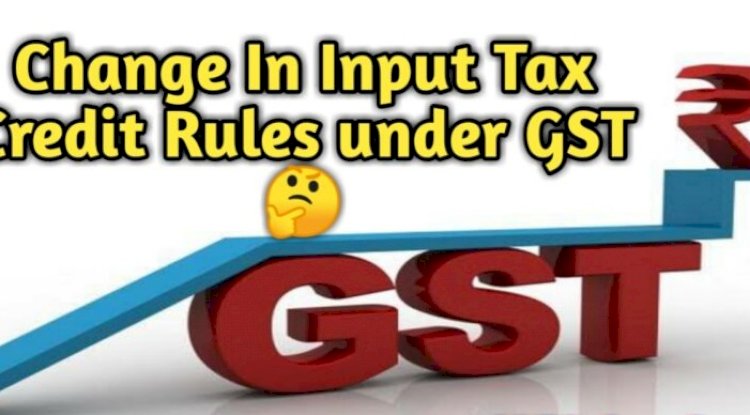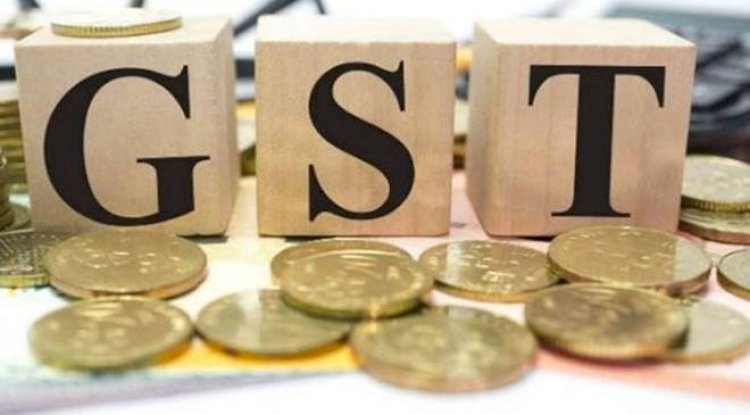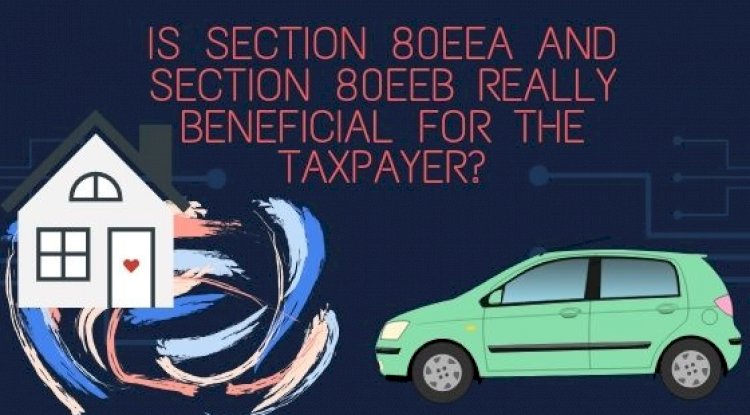CAPITAL GAIN
CAPITAL GAIN
CAPITAL GAIN REFUNDERS, BUILDINGS, TRENDECARS, JEWELERY, SHARES, BONDS, MUTALAL FUND ETC. TO GET ANY EARNING CAPITAL IN ANY WAY. A capital gain can be short-term (one year or less) or long-term (more than one year) and income tax must be claimed.This gain or profit falls under the 'income' category, and therefore you will have to pay tax for the year in which the capital asset transfers. This is called capital gain tax, which can be short term or long term.Capital gains do not apply to inherited property because there is no sale, only transfer of ownership. The Income Tax Act has specifically exempted property received as a gift through inheritance or will. However, if the person who inherited the property decides to sell it, then the capital gains tax will applicable.
NOTE: RURAL AGRICULTURAL LAND IS DIFFERENT FROM THIS DEFINATION
Section 54, 54EC, 54F : Exemption from Long Term Capital Gains
At the time of sale of any long-term capital asset, Gains are usually very large and are subject to a 20% tax. The resulting figure paid as a tax usually turns out to be a very large amount liable to be paid as a long-term capital gains tax.
However, Government of India has given an option to claim exemption from paying this capital gains tax if the taxpayer reinvests the amount in certain specified forms of investment and can save long term capital gains tax as explained below.
LTCG
LONG TERM CAPITAL GAIN REFERS TO AN ASSET WHICH IS HELD MORE THAN 24 MONTHS ARE CALLED LTCG.
STCG
SHORT TERM CAPITAL GAIN REFERS TO AN ASSET WHICH IS HELD LESS THAN 24 MONTHS ARE CALLED STCG
Section 54
Any Individual / HUF can claim under it. This exemption can be claimed on the sale of any residential house property, the holding period should be 24 months and the taxpayer now invests (purchases or constructs) two of that capital gains amount for the long term capital gain on the sale of the house Houses can get exemption (upper limit of 2 crores rupees). Earlier, exemption was available for investment in only one property (not applicable to any plot).
The tax exemption limit will apply before 1 year of selling the property or up to 2 years after the sale. Construction property case in 3 years.
Exemption will be only in capital gain amount which we got from selling. Maximum capital gain limit on which one can claim exemption is 2 crore.
Note: exemption will reversed if new property sold within 3 years of purchasing property. Amount should be held in capital gain account scheme otherwise exemption will not prevail.
Section 54 Old Asset:Residential Property, new Asset:Residential Property
Under Section54-Any long-term capital gain arising to an individual or HUF from the sale of residential property (whether self-occupied or rented) will be exempt to the extent to which such capital gains are invested.
- Purchase of another Residential Property within 1 year before or 2 years after the transfer of the Property sold and/or
- Construction of Residential house Property within a period of 3 years from the date of transfer/sale of property
Provided that the new residential house property purchased or built is not moved within a period of 3 years from the date of acquisition.
If the new property is sold within a period of 3 years from the date of its acquisition, then, for the purpose of calculating the capital gain on this transfer, the amount of capital gain will reduce the cost of acquisition of the property of this house before Section 54. Discount under Capital gains from this transfer will always be short-term capital gains.
Quantum of Deduction Under Section54
Capital gains will be discounted to the extent that they are invested in the purchase and / or construction of a second home.
- If the Capital Gains amount is equal to or less than the cost of the new house, then the entire capital gain shall be exempt
- If the amount of Capital Gain is greater than the cost of the new house, then the cost of the new house shall be allowed as an exemption
No. Of Houses which can be Purchased for Claming Section 54 Exemption
- The Capital Gains Exemption is allowed only if the Capital Gains exemption is invested in construction/purchase of 1 residential house. Irrespective of the no. of houses already owned by the person, if he invests the capital gain in construction/purchase of a single residential house – then capital gains exemption can be claimed.
- As an exception to the above rule, in cases where the amount of Capital Gains does not exceed Rs. 2 Crores, the capital gains exemption would be allowed even if the investment is made in purchase/construction of 2 residential houses. However, this exemption of purchasing 2 residential houses can be claimed only once. This exemption once claimed cannot be claimed in again in any other year. For all other years, investment should be made in construction/ purchase of 1 residential house only.
Section 54EC
Under Section 54EC any person can Claim and Applicable to all Capital Assets like STOCKS, BONDS, HOUSE PROPERTY, PLOT ETC. But in the case Minium Holding Period Should be 3 Years.
Assets are specified Bonds which are with 5 Year LOCK-IN Period (NHAI(National Highway Authority of INDIA) And REC(Rural Electricity Corporation). When one will sell Its any Capital Asset under the period of 6 Months after selling he should invest in any of above Mentioned BOND for Availing Exemption under this Section. Maximum Amount of Investment in 5 Years BONDS are 50 Lakh but Exemption will be Availed only on the Amount which Capital Asset is selled not on Entire Sale proceeds.
Under this Exemption There is not any Requirement of Maitaining any Cpital Account with BANK unlike in Section 54.
Section 54EC: Old Asset:Any Asset, New Asset:Specified Bonds
Gains arising from the transfer of any long term capital asset are exempt under section 54EC if the assessee has within a period of 6 months after the due date of such transfer invested the capital gain in long term specified bonds as notified by the Govt. for a minimum period of 3 years.
In case where the long term specified asset is transferred or converted into money at any time within a period of 3 years from the date of its acquisition, the amount of capital gain exempt u/s 54EC, shall be deemed to be long term capital gain of the previous year in which the long term specified asset is transferred or converted into money.
If the Assessee even takes a loan or advance on the security of such long term specified asset, he shall be deemed to have converted such long term specified asset into money on the date on which such loan or advance is taken.
Quantam Of Deduction under Section 54
- Capital Gains shall be exempt to the extent it is invested in the long term specified assets (subject to a maximum limit of Rs. 50 Lakhs) within a period of 6 Months from the date of such transfer.
- Budget 2014 has also introduced an amendment to Section 54EC , the investment made by an assessee in the long term specified asset, out of capital gains arising from the transfer of one or more original asset or assets are transferred and in the subsequent financial year does not exceed Rs. 50 Lakhs.
Section 54F
The entire capital gain will have to be invested to claim the full exemption. Entire sales receivables have to be invested to claim the full rebate. If the entire capital gain is not invested - the amount not invested is taxed as capital gain.
Any Individual/HUF can claim under this Section and on all Capital Assests Other than House property and can only purchase or Construct residential house property otherwise can't Avail this Exemption.
TIME LIMIT-PURCHASE( 1 YEAR BACK OR 2 YEAR FORWARD).In Construction case if it Completed under 3 Years one can Claim Exemption Under this section .
Section 54F: Old Assest:Any Asset, new Asset:Residential House
Any property received by an individual or HUF will be exempted from the sale of a long-term asset other than a residential property, if the entire net sale is considered.
- Purchase of one residential house within 1 year before or 2 years after the date of transfer of such an asset or in
- Construction of 1 Residential House within 3 years after the date of such transfer
If the entire sale is not considered and only a part of the sale consideration is invested, the rebate will be allowed proportionately i.e.
Amount Exempt = Capital Gain X Amount Invested
Net Sale Consideration
Exemption Under Section 54 F Not Avilable in Following cases
The above exemption would not be available if any of the below mentioned conditions is satisfied:-
- The assessee does not own more than 1 Residential House Property on the date of transfer of such asset exclusive of the one he has bought for claiming exemption under section 54F.
- The assessee purchases any residential house, other than the new asset, within a period of 1 year of the transfer of the old asset.
- The assessee constructs any residential house, other than the new asset, within a period of 3 years after the date of the old asset.
Exemption under Section 54F would not be allowed if investment is made in 2 houses. The option to invest in 2 houses is available once in lifetime in Section 54 but is not available in Section 54F.
The Assessee also has the option of depositing this amount in Capital Gains Account Scheme as explained in Section 54 above, before the due date of furnishing the Income Tax Return.
Other Conditions
*Entire sale proceeds to be invested (If a Person will Invest only Capital Gain Amount he can only avail that amount Exemption not of All %)
* Necessary to maintain capital Gain Account Scheme.
Note: exemption will reversed if new property sold within 3 years of purchasing property. Amount should be held in capital gain account scheme otherwise exemption will not prevail.
What's Your Reaction?























